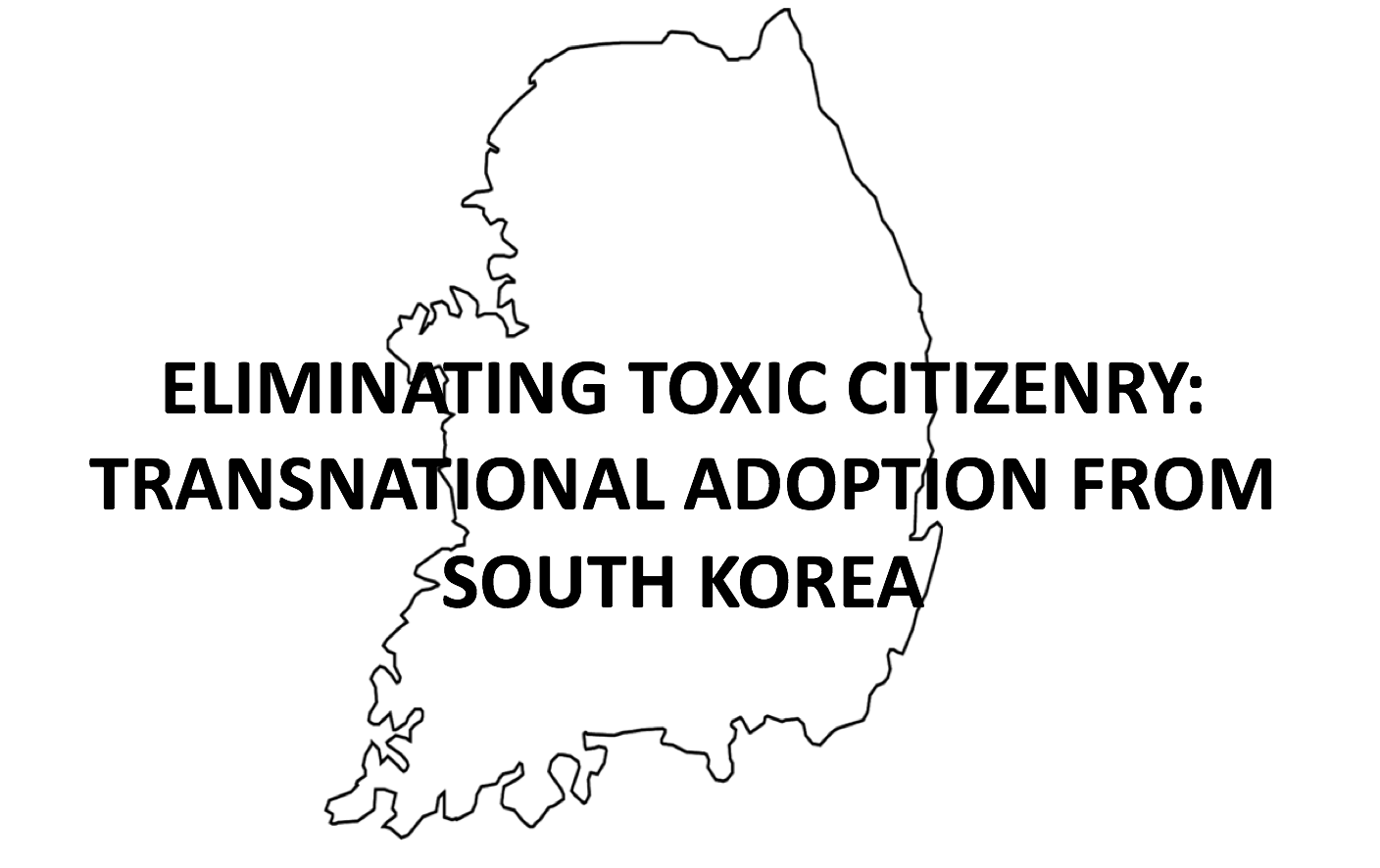This photo collection examines how transnational adoption has been used in three major time periods in South Korea: first, during the rebuilding period after the Korean War through to get rid of the problem of mixed-race children born to Korean women and fathered by UN soldiers; second, to remove the social welfare burden of children born into poverty during the economic development frenz of the 1960s and 1970s; and finally, from the 1980s and still today, to eliminate the problem of unwed mothers in order to protect the hegemonic two-parent heterosexual family form in contemporary South Korean society. Thus, my three images will attempt to visually capture the ways that transnational adoption was used in each phase as a tool to remove children who were seen as “social toxins” who threatened a biopolitical nation-making agenda by the South Korean government.
Description

